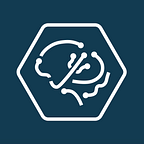A Cognitive Science Take on Mental Wellness
With classes starting to pick up around this time of the quarter, it’s important to maintain a healthy mental and physical state of well-being so we can end our school year to the best of our abilities. In this article, we discuss the Cognitive Science aspects of mental wellness and share some tips to improve your well-being!
Recently, there has been some research done to understand how Cognitive Neuroscience can be integrated with mental health research to increase the effectiveness of interventions that promote mental health. In particular, a study by Brown University’s Carney Institute for Brain Science found that a compound in the brain called NAA plays a key role in agency and flexibility in healthy people and is considered a marker of Neuronal health. The NAA compound (located in the Dorsal Anterior Cingulate) was strongly related to three traits in healthy individuals: emotional fluidity, positive agency and non-aggression. According to this study, individuals with a higher level of NAA reported a higher level of goal directness, positive emotion, and less aggression in comparison to those with lower NAA levels. Thus, it can be concluded that brain compounds such as NAA play a fundamental role in emotional wellness and positive emotional outcomes in healthy individuals.
Brain plasticity, aka the natural ability for your brain to change and adapt as a result of experience, also plays a key role in improving mental wellness. People exist in an ever-changing physical and social environment that influences brain development and function, so our brains are always changing. Oftentimes, social deprivation, neglect, and stress negatively influence the brain by preventing the creation of new neuronal connections that are responsible for cognitive function. As a result, cognition, daily functioning, and motivation are heavily impacted.
That’s why in these socially isolated times, it’s even more important to prioritize your mental health and surround yourself with a healthy environment! Studies have shown that supportive and enriched social environments can facilitate adaptive brain plasticity by generating or strengthening new neuronal connections that are depicted through increasing gray matter and/or brain activation. Other than making the social connections you might have a priority, there are also other methods you can try out as an individual. Here are some great ways that you can improve your mental wellness using various resources available to you!
Headspace
Through your UCSD email account, you should be able to sign up for Headspace for free! Headspace is a guided meditation app that consists of several kinds of meditation videos and audio recordings that will guide you through different kinds of meditation, including morning wake-up, sleep guides, and workouts. Most meditations last between 1–10 minutes, though there are longer ones depending on your needs.
The app includes a daily ‘Today’ section that curates various meditations for your day, and has specific tabs for different types of meditations, such as featured/group meditations, sleep podcasts, movement exercises, and focus-based activities. Try out using Headspace and see if any of the above options work for you!
Journaling
One great way to get a clear picture of your mental and physical well being is to start a regular journal. Journaling allows you to explore your thoughts and feelings, and can help you become more self-aware. Self-awareness is key to maintaining personal balance and stability, and becoming more self-aware will help you become more grounded in yourself, despite whatever is going on around you. Be careful to make sure you’re journaling in a healthy way, by taking a solutions-oriented approach.
Try starting out small to begin with, noting down your emotions or three things you’re grateful for. You can start small; there’s no need to pressure yourself into writing every single day if you’re too busy, and you don’t even have to use a paper journal if you don’t want to! Find a system that works for you, and the rest will follow.
COGS 87 — The Mindful Life
During some quarters, the COGS department offers a 1-unit P/NP freshman seminar called The Mindful Life, which is a ten-week seminar during which students will be guided through weekly 1-hour meditations in a group setting. The class is taught by COGS professors who will introduce students to a wide variety of meditation options and philosophies.
In this seminar, students learn about meditation from a Cognitive Science perspective while also participating in several kinds of meditation. This could be a great option for those who are new to meditation or would like to know more about the science behind it. Students need not be a freshman to enroll; just send in an EASy request!
Exercise and Sleep
One of the most important ways to improve your mental health is to make sure that you’re also physically healthy. Regular exercise and 8 hours of sleep every night are key to a healthy body. However, it can be hard to keep yourself healthy while in college, so here are some tips for staying physically healthy!
Try to set up specific times in your day where you should be exercising, like in the morning or afternoon. Even smaller exercises can work wonders, so don’t be afraid to start small! As for sleep, try to keep a regular bedtime, and hold yourself accountable by not working on schoolwork or watching TV after that point. At some point, holding a regular bedtime will feel natural and will help you feel well rested during the day!
